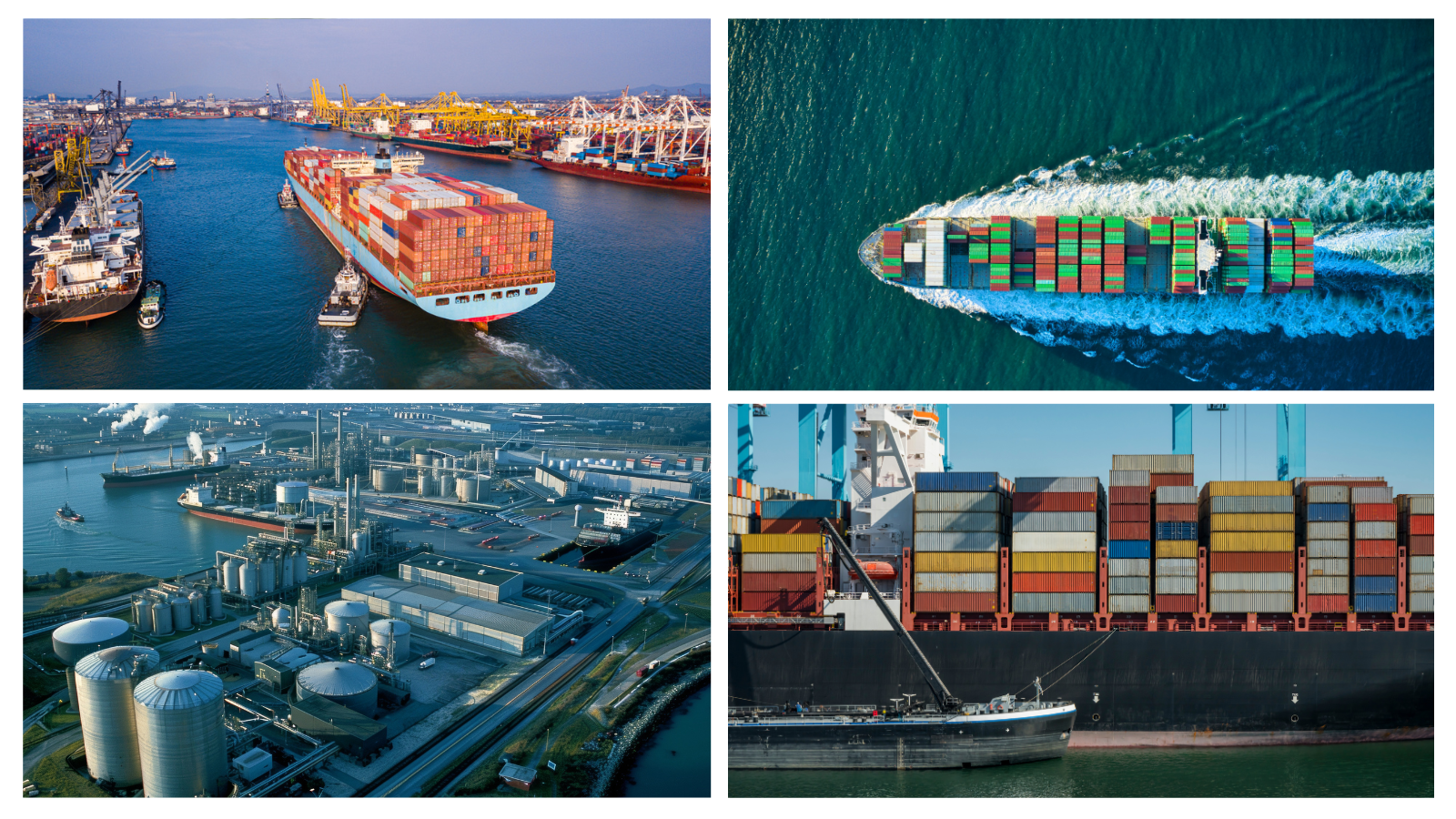
Images from Adobe Stock, Unsplash.com, and U.S. Department of Energy
To support and advance future maritime fuel technology and investment, the U.S. Department of Energy (DOE) released a Request for Information (RFI) to establish a consistent and reliable definition for sustainable maritime fuel (SMF) that informs and aligns community, industry, governments, and other maritime stakeholders.
The Action Plan for Maritime Energy and Emissions Innovation (Action Plan), a summary of which was released in December 2024, builds on the U.S. National Blueprint for Transportation Decarbonization to define actions that aim to achieve a clean, safe, accessible, and affordable U.S. maritime transportation system. The Action Plan calls for the Federal government to define “Sustainable Maritime Fuel” (SMF), which is critical to evaluating and determining future SMF production volume goals in the Action Plan and alternative fuels that align with the U.S. 2050 net emission goals.
The U.S. maritime sector connects virtually every aspect of American life—from our clothes and food, to our cars, and the oil and natural gas used to heat and cool homes. About 99% of U.S. overseas trade enters or leaves the United States by ship. This waterborne cargo and associated activity contribute more than $500 billion to the U.S. gross domestic product and sustain over 10 million U.S. jobs. However, the Action Plan estimates the total amount of greenhouse gas (GHG) emissions from fuel sold in the United States for use in maritime applications accounts for 4% of the U.S. transportation sector’s GHG emissions.
Replacing traditional fuels with SMFs is the quickest strategy to reduce GHG emissions from the maritime sector. Depending on the primary feedstock of sustainable fuels, GHG emissions can be reduced by at least 50% (e.g. using biomass) and up to over 100% (e.g. using waste). While drop-in fuel replacement solutions are currently being developed, the maritime industry cannot rely solely on these replacements. Vessels must look towards alternative energy sources such as clean methanol, ammonia, hydrogen, electrification, and efficiency improvements as the industry moves towards zero- and near zero-emission fuels.
While this RFI is being published by DOE, this is a collaborative interagency effort including, but not limited to, the U.S. Department of Transportation, the U.S. Department of Agriculture, the U.S. Department of State, and the U.S. Environmental Protection Agency. The RFI will also seek specific feedback on other topics that could affect what qualifies as a SMF including: minimum carbon intensity reductions, sustainability factors, criteria air pollutant inclusion (e.g. NOx, SOx, and particulate matter), acceptable feedstocks, how to align with global requirements (e.g. International Maritime Organization (IMO) and FuelEU), and whether accounting for emission reduction technologies (such as onboard carbon capture) should be included.
Additional Information
The Defining Sustainable Maritime Fuels RFI is posted on EERE Exchange and Grants.gov, and responses to the RFI must be submitted electronically as a Microsoft Word (.docx) attachment to [email protected], no later than 5:00 pm (ET) on February 28, 2025. It is recommended that attachments with file sizes exceeding 25MB be compressed (i.e., zipped) to ensure message delivery. Responses should be no more than 3 pages in length, 12 point font, and 1 inch margins. Only electronic responses will be accepted.
Please identify your answers by responding to a specific question or topic if applicable. Respondents may answer as many or as few questions as they wish.
EERE will not respond to individual submissions or publish publicly a compendium of responses. A response to this RFI will not be viewed as a binding commitment to develop or pursue the project or ideas discussed.
Respondents are requested to provide the following information at the start of their response to this RFI:
- Company / institution name;
- Company / institution contact;
- Contact's address, phone number, and e-mail address.
Learn more about sustainable marine fuels, and sign up to receive regular communications from the Bioenergy Technologies Office (BETO) for vacancy announcements, webinars, workshops, Bioprose: Bioenergy R&D Blogs, BETO funding opportunities, and technical reports.
--------------------------------------------------------------------------------------
This RFI is not a Notice of Funding Opportunity (NOFO); therefore, EERE is not accepting applications at this time. EERE may issue a NOFO in the future based on or related to the content and responses to this RFI; however, EERE may also elect not to issue a NOFO. There is no guarantee that a NOFO will be issued as a result of this RFI. Responding to this RFI does not provide any advantage or disadvantage to potential applicants if EERE chooses to issue a NOFO regarding the subject matter. Final details, including the anticipated award size, quantity, and timing of EERE funded awards, will be subject to Congressional appropriations and direction.

